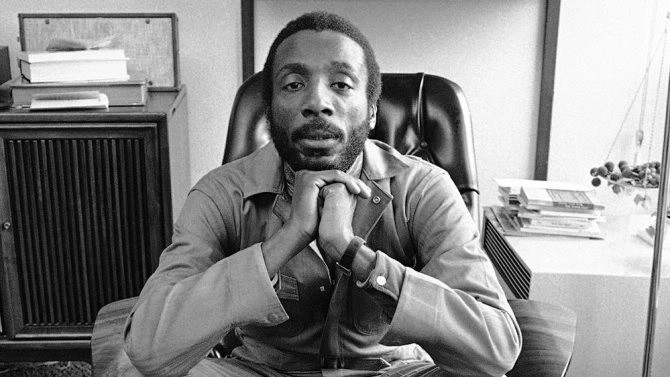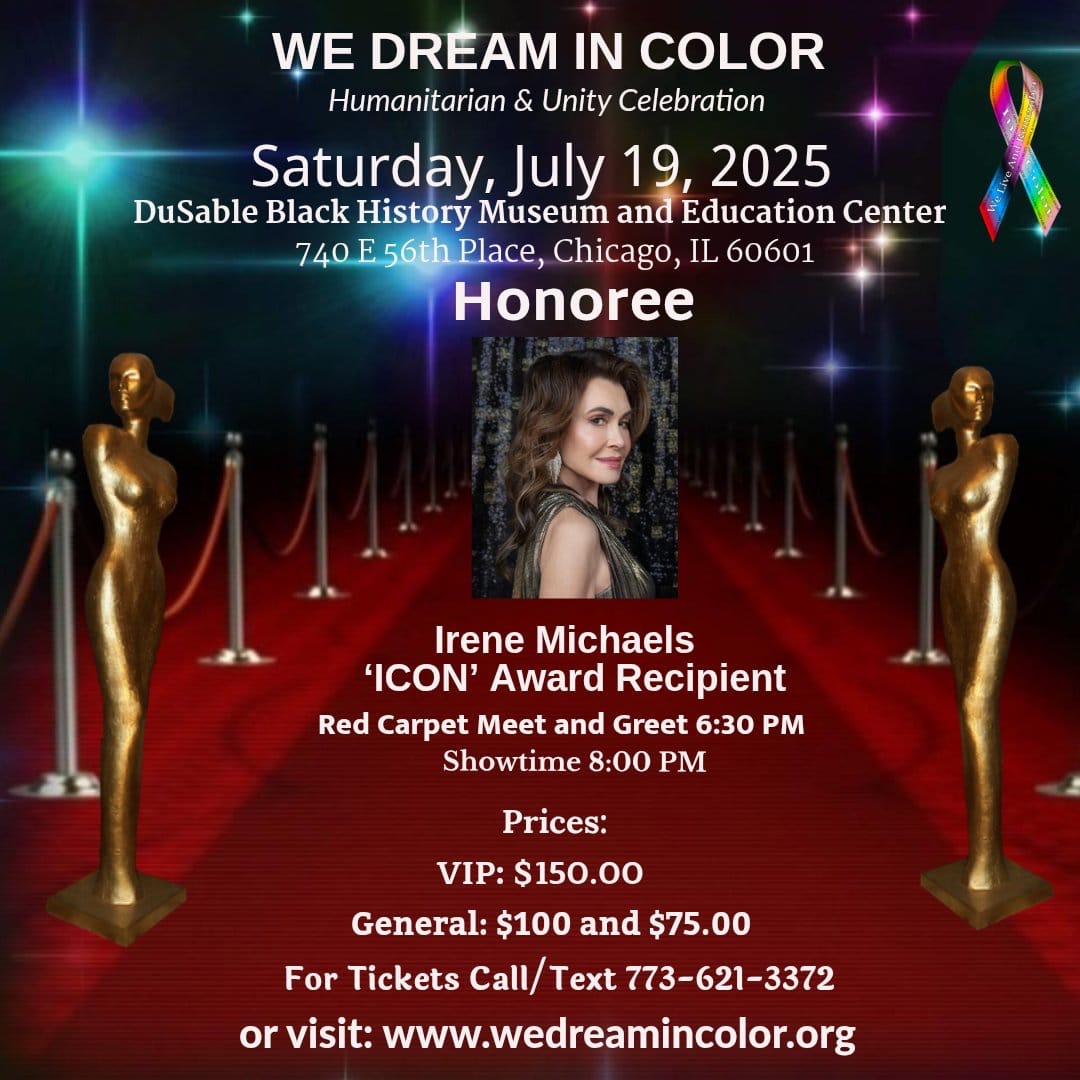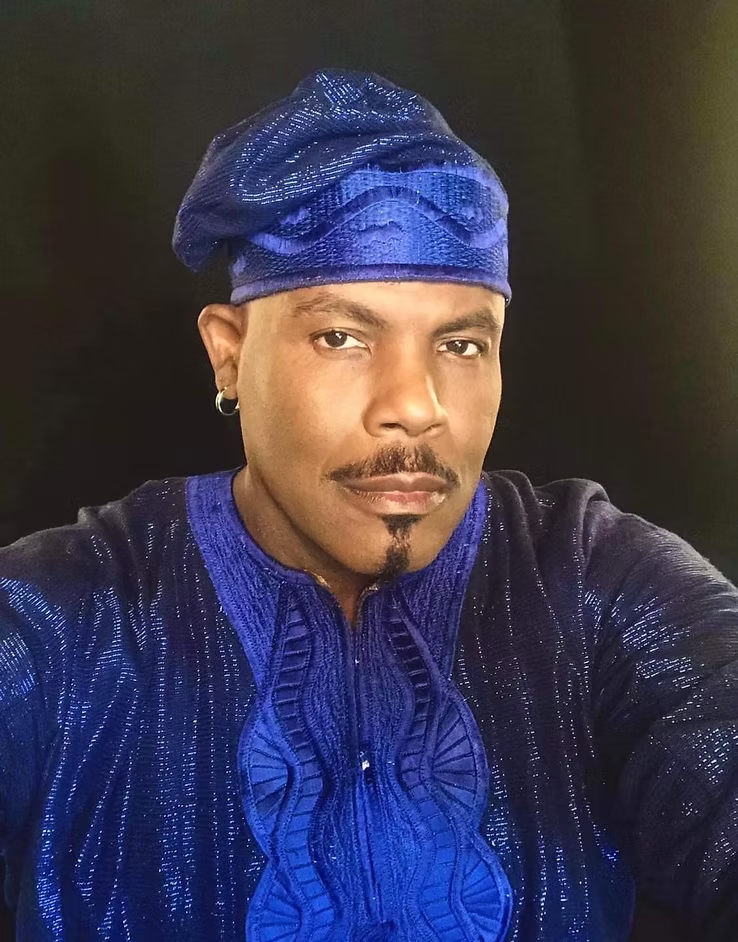We Speak Entertainment
Dick Gregory, civil rights activist and comedic legend, dies at 84

Dick Gregory, the comedian and activist and who broke racial barriers in the 1960s and used his humor to spread messages of social justice and nutritional health, has died. He was 84.
Gregory died late Saturday in Washington, D.C. after being hospitalized for about a week, his son Christian Gregory told The Associated Press. He had suffered a severe bacterial infection.
As one of the first black standup comedians to find success with white audiences, in the early 1960s, Gregory rose from an impoverished childhood in St. Louis to win a college track scholarship and become a celebrated satirist who deftly commented upon racial divisions at the dawn of the civil rights movement.
“Where else in the world but America,” he joked, “could I have lived in the worst neighborhoods, attended the worst schools, rode in the back of the bus, and get paid $5,000 a week just for talking about it?”
Gregory’s sharp commentary soon led him into civil rights activism, where his ability to woo audiences through humor helped bring national attention to fledgling efforts at integration and social equality for blacks.
//platform.instagram.com/en_US/embeds.js
Democratic Sen. Cory Booker of New Jersey tweeted, “Dick Gregory’s unflinching honesty & courage, inspired us to fight, live, laugh & love despite it all.” A tweet by actress/comedian Whoopi Goldberg said, “About being black in America Dick Gregory has passed away, Condolences to his family and to us who won’t have his insight 2 lean on R.I.P”
Gregory briefly sought political office, running unsuccessfully for mayor of Chicago in 1966 and U.S. president in 1968, when he got 200,000 votes as the Peace and Freedom party candidate. In the late ’60s, he befriended John Lennon and was among the voices heard on Lennon’s anti-war anthem “Give Peace a Chance,” recorded in the Montreal hotel room where Lennon and Yoko Ono were staging a “bed-in” for peace.
An admirer of Gandhi and Martin Luther King Jr., Gregory embraced nonviolence and became a vegetarian and marathon runner.
He preached about the transformative powers of prayer and good health. Once an overweight smoker and drinker, he became a trim, energetic proponent of liquid meals and raw food diets. In the late 1980s, he developed and distributed products for the popular Slim-Safe Bahamian Diet.
When diagnosed with lymphoma in 2000, he fought it with herbs, exercise and vitamins. It went in remission a few years later.
He took a break from performing in comedy clubs, saying the alcohol and smoke in the clubs were unhealthy and focused on lecturing and writing more than a dozen books, including an autobiography and a memoir.
Gregory went without solid food for weeks to draw attention to a wide range of causes, including Middle East peace, American hostages in Iran, animal rights, police brutality, the Equal Rights Amendment for women and to support pop singer Michael Jackson when he was charged with sexual molestation in 2004.
“We thought I was going to be a great athlete, and we were wrong, and I thought I was going to be a great entertainer, and that wasn’t it either. I’m going to be an American Citizen. First class,” he once said.
Richard Claxton Gregory was born in 1932, the second of six children. His father abandoned the family, leaving his mother poor and struggling. Though the family often went without food or electricity, Gregory’s intellect and hard work quickly earned him honors, and he attended the mostly white Southern Illinois University.
“In high school I was fighting being broke and on relief,” he wrote in his 1963 book. “But in college, I was fighting being Negro.”
He started winning talent contests for his comedy, which he continued in the Army. After he was discharged, he struggled to break into the standup circuit in Chicago, working odd jobs as a postal clerk and car washer to survive. His breakthrough came in 1961, when he was asked to fill in for another comedian at Chicago’s Playboy Club. His audience, mostly white Southern businessmen, heckled him with racist gibes, but he stuck it out for hours and left them howling.
That job was supposed to be a one-night gig, but lasted two months — and landed him a profile in Time magazine and a spot on “The Tonight Show.”
Vogue magazine, in February 1962, likened him to Will Rogers and Fred Allen: “bright and funny and topical … (with) a way of making the editorials in The New York Times seem the cinch stuff from which smash night-club routines are rightfully made.” ”I’ve got to go up there as an individual first, a Negro second,” he said in Phil Berger’s book, “The Last Laugh: The World of Stand-up Comics.” ”I’ve got to be a colored funny man, not a funny colored man.”
His political passions were never far from his mind — and they hurt his comedy career. The nation was grappling with the civil rights movement, and it was not at all clear that racial integration could be achieved. At protest marches, he was repeatedly beaten and jailed.
He remained active on the comedy scene until recently, when he fell ill and canceled an August 9 show in San Jose, California, followed by an August 15 appearance in Atlanta. On social media, he wrote that he felt energized by the messages from his well-wishers, and said he was looking to get back on stage because he had a lot to say about the racial tension brought on by the gathering of hate groups in Virginia.
“We have so much work still to be done, the ugly reality on the news this weekend proves just that,” he wrote.
He is survived by his wife, Lillian, and 10 children.
We Speak Entertainment
We Dream In Color Humanitarian and Unity Celebration Hosted By Chief Dr. Quinton de’Alexander Featuring Irene Michaels July 19th, 2025

In a world increasingly fractured by hate and division, the 2025 We Dream In Color Humanitarian and Unity Celebration emerges as a radiant call for healing, inclusion, and peace. Now in its 13th year, the celebration—hosted by acclaimed fashion designer and global humanitarian Chief Dr. Quinton de’Alexander—has become a sanctuary for survivors, visionaries, and changemakers. This year’s theme, “A Call for Unity,” reflects a growing urgency to mend broken spirits and uplift communities through compassion, creativity, and action.
With a legacy of honoring unsung heroes and fostering global connection, the event will be held at the historic DuSable Museum of African American History, promising a night of powerful performances, heartfelt recognition, and transformative purpose. Among the evening’s highlights is the rare and prestigious ICON Award, which will be presented to multitalented entertainer and humanitarian Irene Michaels, only the second recipient in the foundation’s history.
From fashion to philanthropy, and from Liberia to Chicago, We Dream In Color stands as proof that when we lead with love and walk in unity, the world begins to heal—one vibrant dream at a time.

This year’s We Dream in Color Celebration is shaping up to be truly special. What inspired the theme for 2025’s event?
The theme this year is “A Call For Unity” We’re living in a world that falling apart through hate like never before. As I travel globally. It saddens me to see the hate people are displaying openly with no remorse. As I’m discovering and witnessing adults today in my own circle bickering. I want to find a way to peace to brighten some very sad and broken souls. So they can begin healing within first. Then love on others openly with kindness. My ‘We Dream In Color’ Humanitarian and Unity Celebration has a way of bringing joy on a night of celebrating life, displaying what humanity looks like through ‘unity and diversity.
The “ICON” Award will be presented to Irene Michaels—what does she represent to you and to the mission of this celebration?
My ‘We Dream In Color’ celebration ‘ICON’ award has only been given out once before in ‘Thirteen’ years. I’ve known Irene many years now. I know her zest for life, her driven spirit and passion to rise above life’s challenges, her love for those who are less fortunate, and most important. Irene’s love for humanity. To me. She’s every woman. When we have the ability to lift people up, we often forget to lift those close to us up. When I thought of presenting my ‘ICON’ award. There was no one more deserving than my dear friend ‘Irene Michaels’. To me, Irene embodies the spirit of my ‘We Dream In Color Foundation’ mission of loving and lifting others up in the midst of life’s storms. Even the enemy who trespass against thee. Where there is forgiveness, there is healing.
How do you go about selecting honorees for the We Dream in Color Foundation? What qualities or contributions stand out most to you?
I’m extremely particular by selecting my honorees. Many of my honoree are survivors who has risen above unexpected challenges they’ve faced. Such as ‘Cancer, Discrimination, and Violence’ to name a few. Many who are overlooked due to lack of prosperity and what’s considered suitable life’s accomplishments, such as an educational degree. Yet, they’re doing the work to lift others many would not do. Each honoree, I’m fully aware f their accomplishments and met them all. Many are selected, few are chosen. I look for honoree who has a real and true passion to heal humanity through actions. Having the receipts to validate their humanitarian efforts. I also look for a special feeling within myself when I’m speaking with them. I must feel the spirit of GOD, love, compassion, and humanity.

What can guests expect from this year’s experience at the DuSable Museum—any surprises or moments you’re especially excited about?
The guests of ‘We Dream In Color’ Humanity and Unity Celebration can expect to feel they’re in a safe and happy place where they belong. A night of powerful and phenomenal entertainment, high quality awards and an night of celebrating life in ‘unity, diversity and peace’. I’m most excited to lift many people up within this year of elevation, in the midst of the dark times we’re living in. Humanitarians will walk in as themselves, but walk out as newly elevated honorary doctors. Gifted by my partners of education. HRH Dr. Clyde Rivers and ‘United Graduate College and Seminary International.
We Dream in Color is about unity, inclusion, and humanitarian impact. How do you ensure those values are upheld in every aspect of your work—from fashion to philanthropy?
For thirteen years now, I’ve kept up with most of my honorees. Unlike many who presents honorees. We Dream In Color Foundation becomes an extended family. Meaning. If we’re ever needed, we will be there to assist where it’s humanly possible. Having that bond gives us a closer look on the great impact our honorees are continuing to make towards healing humanity. If they ever needed a hand to be lifted up themselves, our hands will be there to carry them along the way whenever they’re feeling low or weak. Assuring them. Their extended ‘We Dream In Color’ family has their backs. Being a fashion designer of ‘Fifty Plus’ years. I’ve come across my ‘victims and survivors’ with broken souls. I’ve created the ‘Encourage Yourself Makeover’. A process that gives ‘women and men’ their power back by returning to taking care of, and putting themselves first. Being a foundation with no financial backing but my desire at this time. I’m utilizing my GOD given talents to get by ‘uplifting, inspiring and empowering’ globally. Doing my part adding into the melting pot to heal humanity.
The name “We Dream in Color” is both poetic and powerful. What does it mean to you personally?
It means ‘Strength’. I’ve had to fight all my light to live my dream alone. People are so afraid to opened doors for others due to their lack of confidence. I’m blessed GOD built me different. He built me with a loving heart made of steel. Meaning. In the darkness of any challenges. I will illuminate with the beauty of color. For it is my color that will shine for those who are feeling weak, overlooked, abandoned or alone’ in this cold, gruel, evil, selfish, unbalance, and dark world. You see. I’ve been there and I’ve discovered the path to living my dream daily in peace. So, when I’m introduced or see the broken spirited, I just want to lift them up and wrap my arms around them. Assuring them GOD loves them, I love them, and they are no lone alone and safe. To GOD be the glory.
Your foundation bridges art, activism, and community. How do you see the role of creative expression in healing and uniting people?
Art is universal. Art has the tendency to make people feel good with it’s beauty. Like fashion. When you look good, you feel good. Sometimes great. When you feel good or great, you love on people more. Family, friends and communities comes together at happy times and places. Combining ‘art, fashion and community’ together in a happy mental space is the perfect way to start the healing process of humanity.
You’ve built a brand that fuses couture with cause. What first sparked your desire to create a platform that’s both visionary and humanitarian?
Many survivors dealing with various life’s challenges feel left out during the months with recognizable awareness ribbon colors. Such as pink for breast cancer awareness months. I believe I’ve ran across every life’s challenge in my lifetime. I’ve also heard many truths of feeling left out. I decided to create a ribbon incorporating all the colors from the electromagnetic spectrum. Bringing forth a ribbon leaving no survivor behind. Followed by a chart that defines each color. Assuring whatever the challenge one may face, they are not forgotten or left behind.
How has your journey in fashion and design influenced your perspective as a change maker and leader?
Being a designer, you’ve learned or mastered the art of creating beauty by mixing fabrics. That mixing is the perfect example of the beauty that comes when diversity work together in unity. As a leader, it’s our duty and an honor to raise up peace through ‘unity and diversity’. When we teach loving each other equality and in balanced support, and it’s learned and accepted. Healing and peace begins. Trust, it isn’t easy. Praying helps. But I find putting actions over talk, seems to get the people listening globally. When promises are broken constantly, people put their guards up. Once you’ve proven yourself, your word and loyalty. The guard comes down. Where respect is given, so shall it be received. No matter the war. A leader leading the call for ‘unity and peace’ in the end shall prevail.

What has been the most rewarding moment for you since launching the We Dream in Color Foundation?
There have been several. Receiving ‘President Joe Biden’ Lifetime Leadership Awards consecutively. 2023 & 2024. As well as receiving Chieftaincy in ‘2’ countries. Chief Tamba Taylor of Liberia (December 2020) and ‘Aare Atayesa of Akola Ijesa Kingdom’ (December 2024) of Nigeria. Both for my humanitarian efforts I’m making globally through my ‘We Dream In Color Foundation’, and the nickname ‘Talk and Do’ Chief. Because I fulfill the promise I make. Sometimes Instantly.
What are your hopes for the future of We Dream in Color? Are there any upcoming initiatives or collaborations you can share with us?
My plans I can share openly is to establish partnerships with various women empowerment organizations. I partnered with a young lady in Liberia name ‘Abigail David’. After the women feeling safe to come to me as a leader asking for help with their most personal and private moment. Together. Abigail and I established ‘FLOW DAY’. A day of educating young ‘girls and women’ how to properly maintain themselves during this time. After a hygiene education presentation. Feminine products are gifted to all the attendees. As far as upcoming initiatives. In partnership with ‘Dr. Mariann Jordan’ CEO of JP Consulting Group IIL’, I will be launching the ‘Chief Tamba Taylor Entrepreneurship Incubator’ in various Africa countries. Only in poverty areas.
For young people or creatives looking to make a difference, what advice would you give about using their voice and vision for impact?
Become Independent. Depend on yourself first. Them ask other to assist. Learn every aspect of your desired fields. From the task itself, to the computer up to the accounting. This way no one can ever take away you power and business too. Only interact with “actions’ producers with receipts to validate their work, and back up their talk, most important. Respect others time and become a ‘talk and do’ game changer. Last but not least. Always dream BIG and Dream In Color!
The official website for We Dream In Color Humanitarian and Unity Celebration may be found at https://www.wedreamincolor.org
Interview by Eileen Shapiro
-

 We Speak Soccer1 week ago
We Speak Soccer1 week agoNo Entry Allowed: How Austin Fortner Is Becoming a Standout Keeper with Confidence and Control
-

 We Speak Football1 week ago
We Speak Football1 week agoFrom Snap to Touchdown: How Niah Reyes Plays the Game with Heart and Hustle
-

 We Speak Soccer4 days ago
We Speak Soccer4 days agoFrom Small Steps to Big Goals: How Alianna-Reyne Basa Became a Fearless Striker with a Champion’s Heart
-

 We Speak Soccer6 days ago
We Speak Soccer6 days agoBrylee Tagle: Crafting Excellence on the Soccer Field with Vision, Confidence, and a Passion for the Game

















